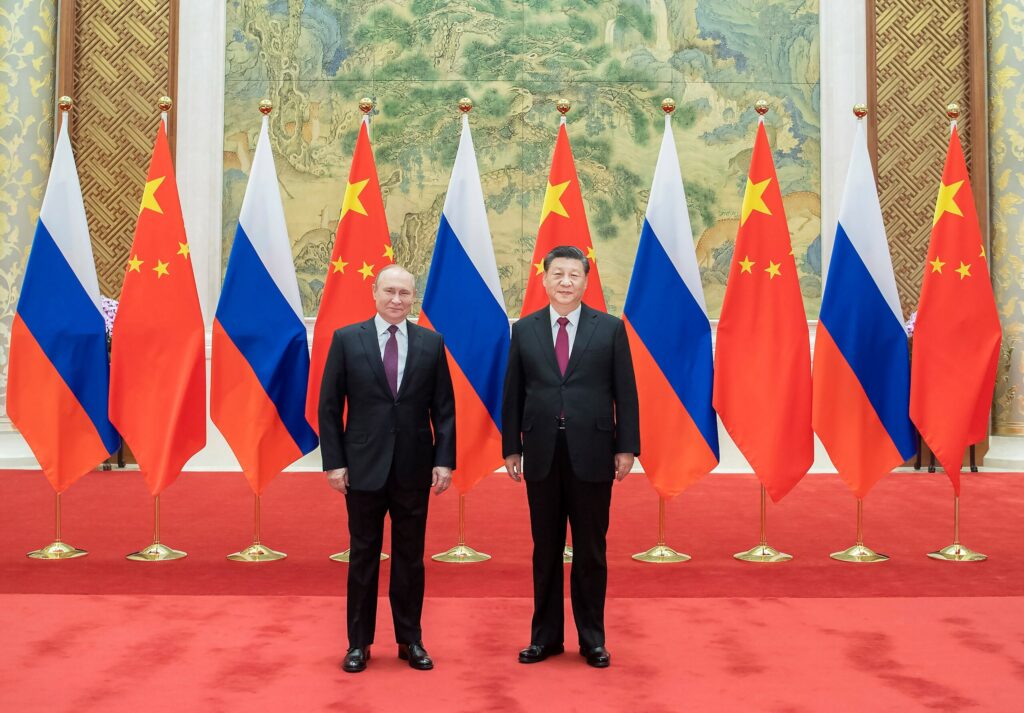Chinese President Xi Jinping emphasized the strength of the strategic partnership between China and Russia during his meeting with Russian President Vladimir Putin at the BRICS summit in Kazan. Xi described the global situation as being “gripped by chaos” but expressed confidence that the alliance between Beijing and Moscow would remain a stabilizing force during these turbulent times.
In his remarks, Xi noted that the world is undergoing unprecedented changes, with the international landscape marked by growing instability. However, he stressed that China and Russia’s partnership is a pillar of stability in this environment. “At present, the world is going through changes unseen in a hundred years, the international situation is intertwined with chaos,” Xi said. “But I firmly believe that the friendship between China and Russia will continue for generations, and great countries’ responsibility to their people will not change.”
Xi and Putin have committed to deepening their nations’ ties as they face increased pressure from the United States and its allies. In May, the two leaders pledged to usher in a “new era” of partnership, positioning China and Russia as counterweights to U.S. influence, which they framed as the force behind global instability. Both nations view the United States as an aggressive power, pushing back against what they perceive as its Cold War-era hegemony and interference in global affairs.
China, grappling with U.S. efforts to curb its growing military and economic influence, and Russia, locked in a war with NATO-backed Ukraine, have found common ground in their opposition to Western influence. Both countries seek to portray the West as a declining, decadent force, while promoting their own models of governance as stabilizing alternatives.
Putin, who referred to Xi as a “dear friend” during their meeting, echoed these sentiments, highlighting the partnership between Russia and China as a key factor for global stability. “Russian-Chinese cooperation in world affairs is one of the main stabilizing factors on the world stage,” Putin stated. He further expressed Russia’s intention to enhance coordination with China on multilateral platforms to ensure global security and promote a “just world order.”
The United States has identified China as its most significant competitor and Russia as its greatest national security threat. U.S. President Joe Biden has framed the ongoing geopolitical struggle as a contest between democracies and autocracies, specifically pointing to China and Russia as the primary examples of authoritarian governance. Biden has been openly critical of both leaders, referring to Xi as a “dictator” and Putin as a “killer.”
Despite the U.S. position, Xi and Putin have continued to strengthen their bilateral ties, positioning their nations as leaders of a global realignment against Western dominance.
Xi also underscored the importance of cooperation within the BRICS bloc, which consists of Brazil, Russia, India, China, and South Africa, during the summit. He described the group as “the most important platform for solidarity and cooperation between emerging market countries and developing countries in the world today.”
He went on to praise BRICS as a driving force in promoting “equal and orderly global multipolarity” and fostering “inclusive and tolerant economic globalization.” For both China and Russia, BRICS represents a key platform through which they can amplify their influence among developing nations and challenge the current Western-dominated international order.
As China and Russia deepen their alliance, the world watches closely to see how their strategic partnership will shape the emerging global landscape, especially as tensions with the United States and its allies continue to grow.



